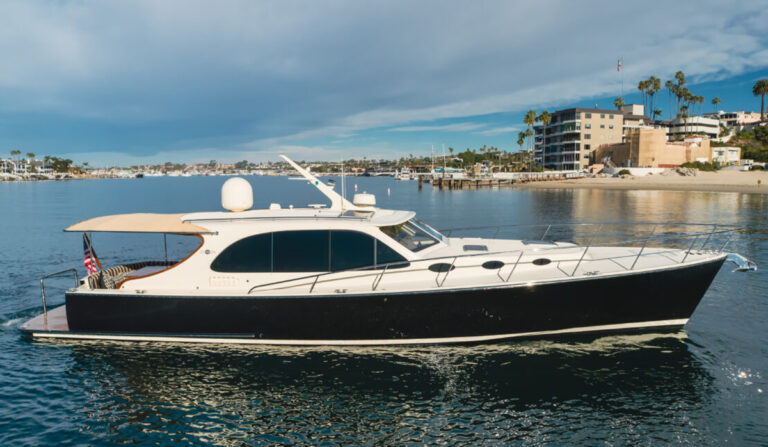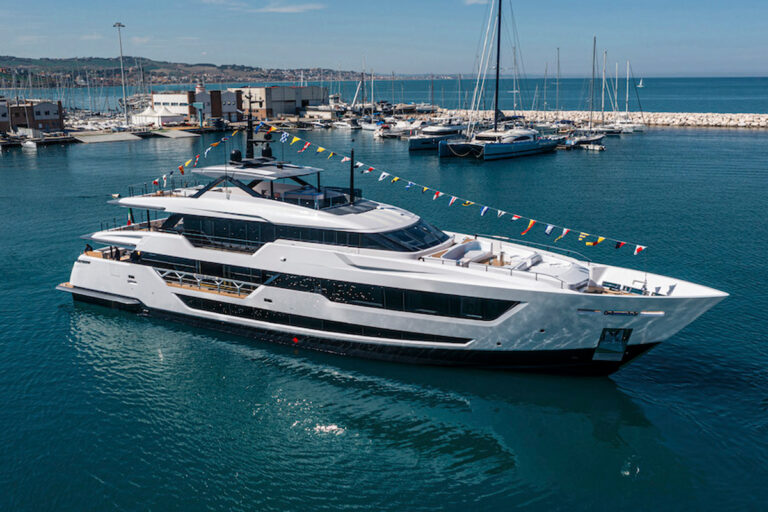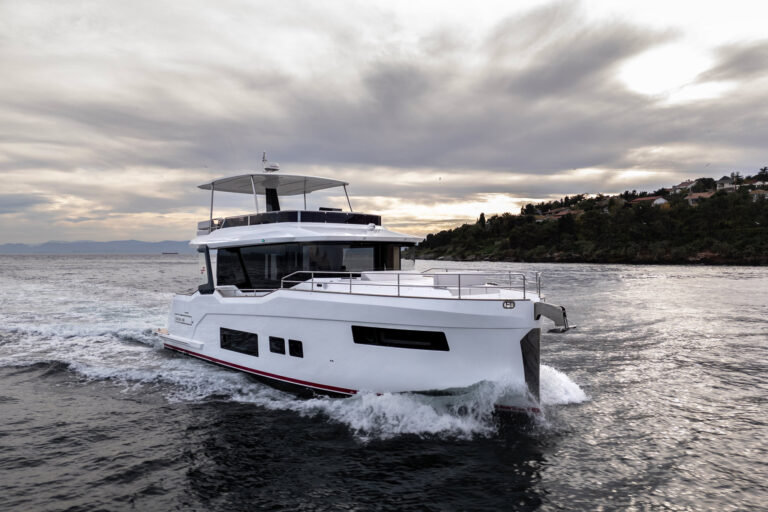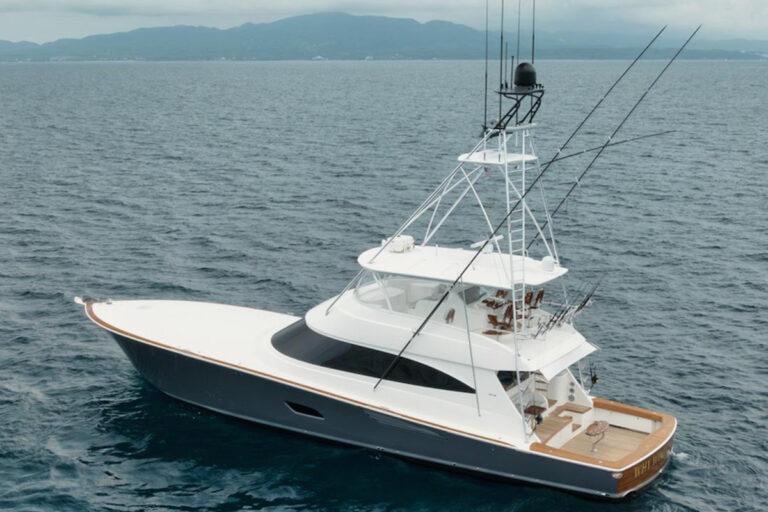Pay cash or finance?
Tom Culligan wrestled with that question last spring as he negotiated with several dealers for the purchase of a new Sea Ray 360 Sundancer. Culligan, a trader with the investment firm Cantor Fitzgerald, finally decided to finance for some very practical reasons.
“Money was so cheap, it just didn’t make sense to pay cash,” he said. “And unfortunately, with the economy being so uncertain, I wanted to hold on to as much cash as I could.”
Culligan wouldn’t say how much he paid for the boat, which lists for close to $300,000, but said he financed about $200,000 of the purchase. If the economy were to sour, and he suddenly found himself unemployed, Culligan believes he could resell the boat and pay off the loan while using the cash to cover his daily living expenses.
Then there’s Doug Smith of Wiscassett, Maine, who in August was awaiting delivery of a Legacy 34. Smith, a former banker and marina owner, paid $375,000 for the boat-all with cash. Smith said he didn’t even consider financing, for a couple of reasons.
“My grandfather had a seat on the New York Stock Exchange in 1929 and lost everything in the stock market crash,” he said. “He literally went from being a millionaire to being a pauper.”
Growing up under the shadow of that legacy, Smith’s father preached one simple message about managing personal finances: “If you can’t pay cash, don’t go at all.”
Smith said his own views aren’t quite that extreme. “Financing a home or other asset where it makes good economic sense is fine,” he said. But not when it comes to a boat purchase. “If you can’t pay cash for your toys, then you can’t afford your toys.”
It’s a debate being played out all over the country. The current low-interest-rate environment is helping to drive sales, especially of yachts. Whether to finance or pay cash often is a big consideration for any potential buyer. Surprisingly, cash wins out more often than you might think-even when the boat in question carries a price tag well into the six- and seven-figure range.
Why would someone pay $1 million in cash for a boat when he wouldn’t think of paying cash for a similarly priced house? And why would he do so at a time when interest rates on boat loans are at or near all-time lows?
According to experts, many cash buyers, like Smith, just can’t justify financing something they consider a big toy. Often, however, they’re not even aware that you can finance a boat.
Back in the mid-1990s, so many boat buyers were paying cash that the Chicago-based National Marine Bankers Association launched an aggressive marketing campaign designed to educate boaters on the merits of financing. The argument for financing went something like this: Interest rates had dipped below 10 percent and were hovering near 20-year lows, while the stock market was realizing double-digit gains every year. Why not finance the boat, which is a depreciating asset, and put the cash to work in the stock market?
Sounds logical, and many new- and used-boat buyers heard the call. More and more people financed, and more and more banks and general lenders began offering boat loans to cash in on the trend.
Fast forward to 2003. Interest rates on boat loans are running at around 5 percent. Lenders who have been in the business for more than 30 years say they’ve never seen rates on boat loans so low. The stock market, however, is still trading well below its peak levels of several years ago. So, given the current state of the economy and the stock market, does it still make sense to finance that boat purchase rather than pay cash? Dealers, lenders and many boat buyers say yes.
“We are in a scenario that will likely not be repeated for a long, long time,” said Larry Russo, owner of Russo Marine, which operates multiple dealerships in Massachusetts, Rhode Island and Maryland. “Borrowing rates are so low and so attractive, it is imperative that consumers finance instead of paying cash, so that cash can be invested in financial markets that are going to do nothing but grow in the next three to five years.”
In fact, stocks in July were trading 10 percent or better above the lows reached earlier this year.
“If you’ve been reading what economists are saying, they are predicting that (the markets) have already turned, particularly the NASDAQ,” said Peggy Bodenreider, the president of NMBA. “It’s a good time to think about gradually putting that money back into the market. Don’t tie it up in a boat, where you can’t get it back.”
Even if you’re bearish on the markets long term, there are other opportunities to put your cash to work for you, Bodenreider said.
“Real estate is still a very good investment, and we’ve seen a lot of money being poured there lately,” she said. “So if you spend your money on a boat, you can’t put it into real estate.”
There are other things to consider in the cash-versus-financing debate. Marine loans are more like home loans, especially on boats with a head, galley and sleeping quarters. For example, you can finance a boat for up to 15 years. Also, because a boat with a head, galley and sleeping quarters qualifies as a second or primary home, you can deduct the interest (what little of it there is these days) from your federal income tax. Again, interest on marine loans hasn’t been this low in decades-and not simply because overall rates are so low.
Historically, boat-loan rates have been “priced a few points above those of home mortgages”. This spread has disappeared over the last few years for a variety of factors, including that default and delinquency rates for boat loans are very low-well below those on car loans and, certainly, credit cards-which has attracted a record number of lenders to the market.
“Lender (marine loan) portfolios continue to perform very well,” Bodenreider said. “In fact, NMBA statistics are that the delinquency rate on loans of over $25,000 is well below 1 percent.”
Competition among lenders for these high-quality loans has helped erode the spread between boat loans and other types of loans. The Internet also has played a roll in keeping boat-loan rates low because it makes shopping for the best rate and applying easy.
“There’s no doubt that the ability to shop rates online, if lenders are posting rates, is helping boaters find the best deal,” Bodenreider said. “However, there’s more to consider than just the interest rate.”
When you’re shopping for loans, lenders advise you to ask about points, fees and closing costs, just as you would when shopping for a home mortgage. Watch out for early-payoff penalties. Make sure you’re dealing with a lender that offers the level of customer service you think you’ll need.
OK, all this talk about today’s low interest rates leads to an obvious question: How long will they stay at these levels? The answer is that nobody knows for sure. Earlier this year, prognosticators were forecasting an increase in overall interest rates starting in late 2003. But with the economy still sluggish and concerns about deflation on the minds of Federal Reserve officials, marine lenders now believe rates will stay low through this year.
“At this point,”Bodenreider said, “I’m looking for rates to slowly start to increase in the spring of next year.”









